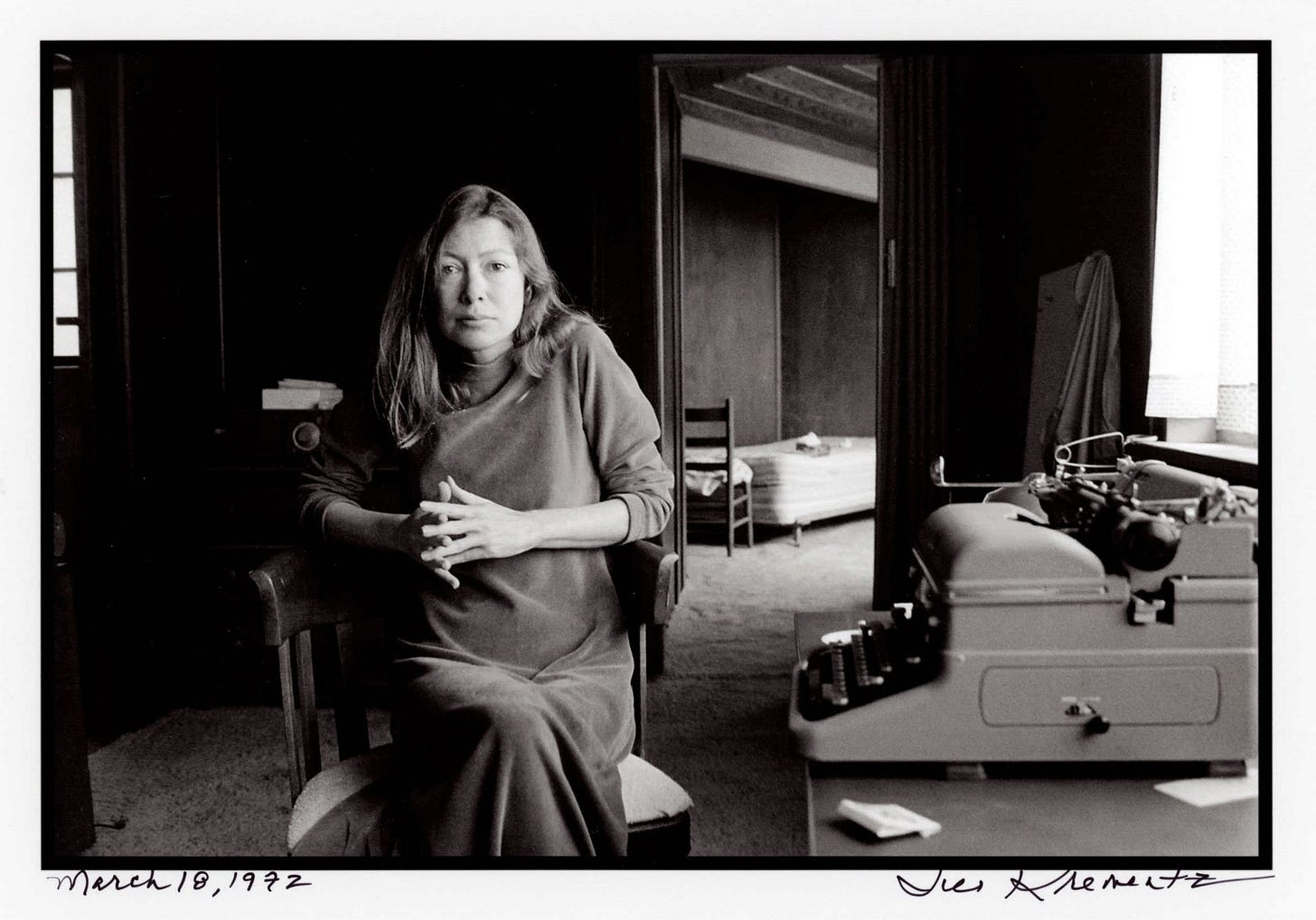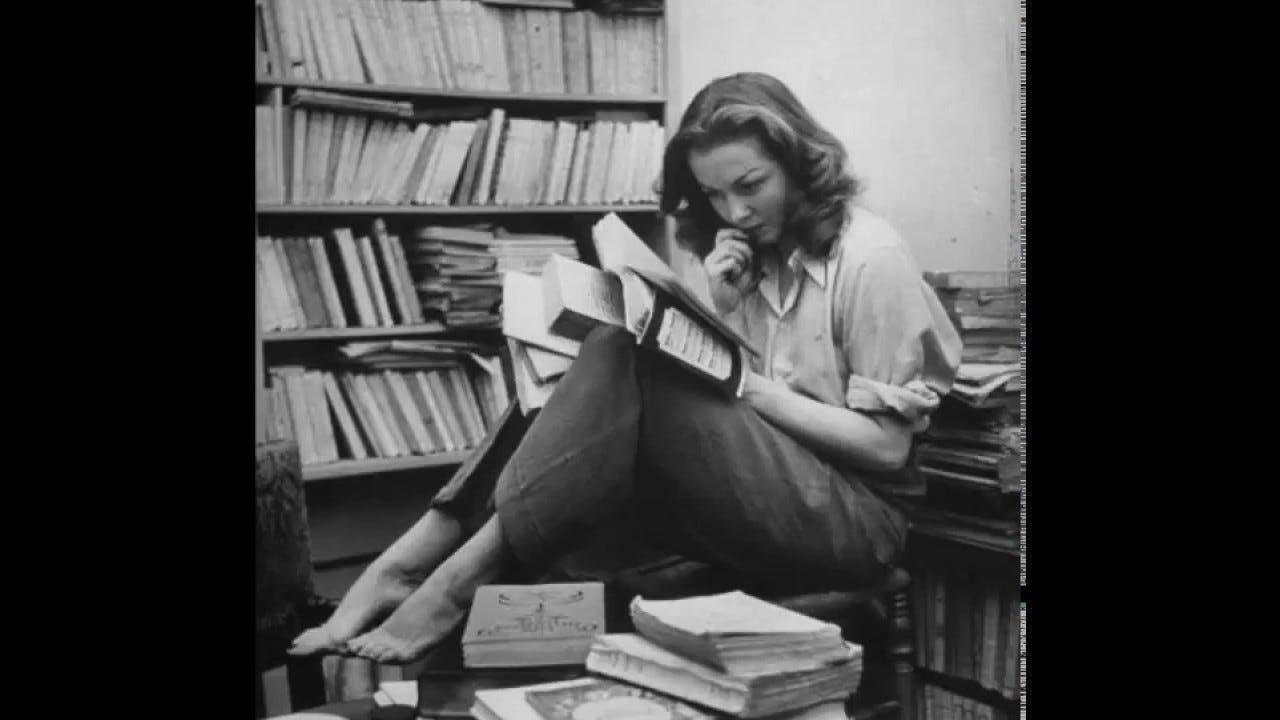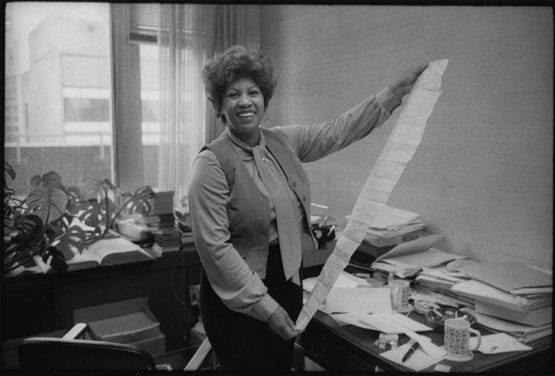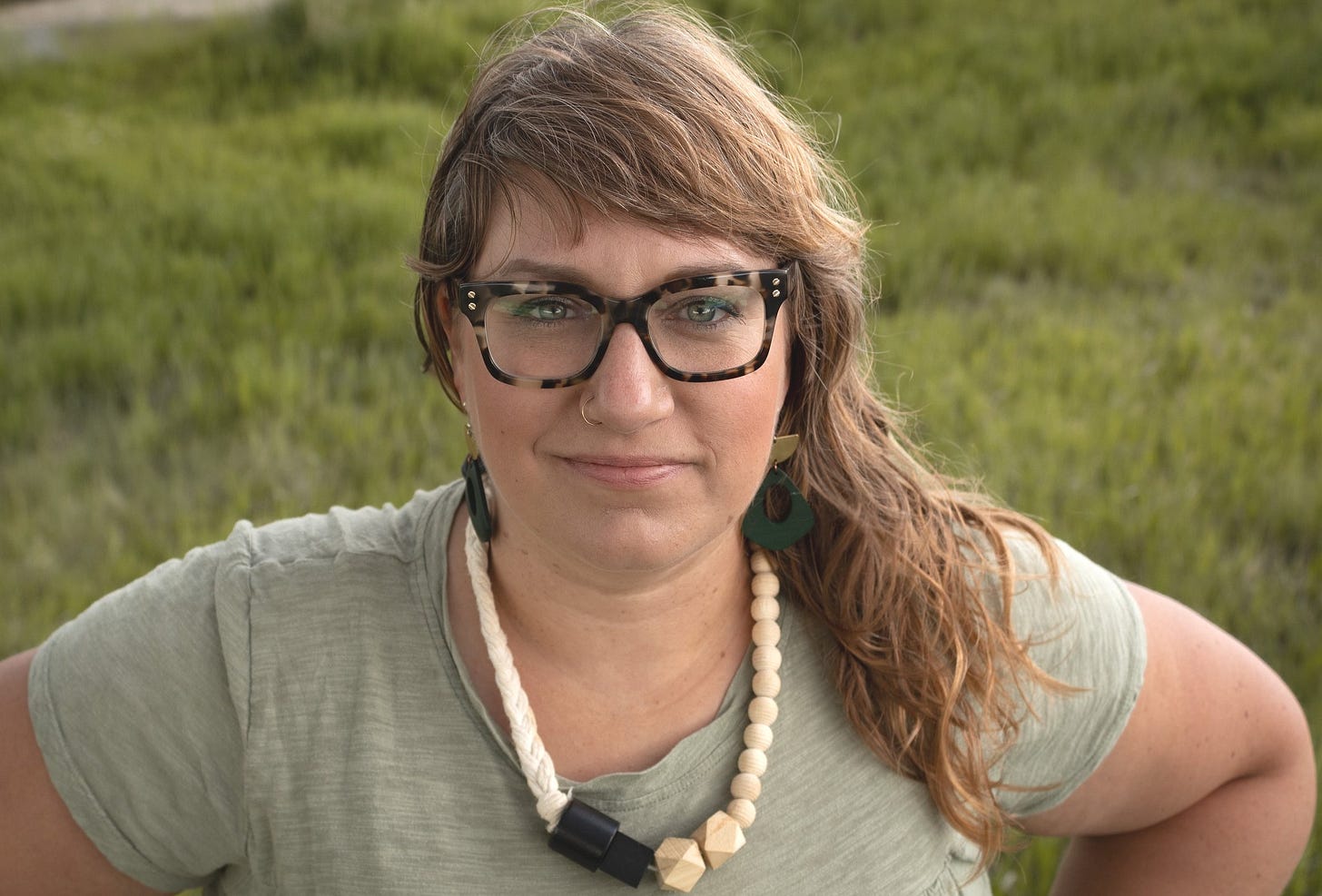the Empathy List #136: A Debut Author's Publishing Story, Part 4
The Manuscript that Lived, AKA my first published book releases TODAY!
Hello friend, Liz here.
Remember: every artist success story is preceded by failure and rejection. ;-) (Does knowing that help to tame the envy monster? It helped me!)
In part 1 of this special publishing series, I described the origins of my desire to become a writer, a manuscript of short stories I wrote and that the indie presses of the day roundly rejected (40 indie presses rejected my first book! Four-Zero!), and the encouragement that kept me from quitting.
In part 2, I described the paradox of a burgeoning career and the shattering reality of needing to work my butt off in lieu of “getting discovered” (rude).
In part 3, I told you the sad story of my dead-on-arrival memoir, we discussed the importance of both individual perseverance in the writing life AND the way my author friends got me through my deep disappointment.
TODAY, in part 4, I’m celebrating the release of my first-ever published book! And I’m telling you the story of how it came to exist (cue the happy tears).
An Idea that Dogged Me
Question: How do you tell when an idea is a good one?
Answer: It stays with you.
My book that releases today—Knock at the Sky—began as an idea way back in those early days, when Jeremy and I were still figuring out the rhythms of our crafts within a marriage, back when I had devoted myself to writing a book of short stories based on Jesus’s parables. Back then, I had an idea for a next book: a book about the most transgressive, strange myths of the Hebrew prophets.
It may sound strange to those of you who did not grow up in white American evangelicalism like I did to hear that my first instinct as a nonfiction writer was to rewrite the Bible. But the Bible had always enamored me. The sand, the heat, the way a story written thousands of years ago from such a great distance can still resonate because the characters remain true.1
The Bible is ancestral stories and wisdom, passed across so many hands to reach you and I today. The Bible is a living fossil, like any masterwork of literature. And also, Christians believe that the book contains some magic dust of God. No one can precisely define what that sparkle is or means, though every believer and pastor and clergy person you talk to will have her own theory. We call it “inspired” or “God breathed,” and when we do, we mean something between God possessing its writers, an angel muse who bends to whisper in the Gospel writers’ ear, a science textbook, a faithful disciplined effort to record what happened, and/or unrestrained poetic license. Basically, we have no idea, but we hope that God exists between the pages of our sacred book. Some of the narratives in the Bible are undoubtedly factual, and others float in the realm of myth, and it’s not always easy to tell the difference between them.
But the reason that I wanted to write about the Bible is because I did not like how Christians wrote about the Bible, and I wanted to do it differently. At the time, I’d never heard of Thomas Merton or Frederick Buechner, but I had read Francine Rivers (particularly her book adaptation of Hosea, Redeeming Love), every Frank Peretti novel, The Shack, and the entire Left Behind series. I had also read L’Engle and Dillard, and back then I cringed at their Christian universalism (though I forgave them both for straying and kept reading anyway). Reading Anne Lamott also stretched me during this period because I had never met a Christian democrat, and while she seemed to be crazy about Jesus, she could not stand President George W. Bush and wrote openly of her disdain for him. (My people loved him universally, or so I’d thought. Personally, I didn’t care about Bush. I was a one-issue voter, and my issue was pro-life policy. I’d been wholly indoctrinated.)
But while I’d enjoyed the Christian publishing hits above, I had grown to despise the entire genre of self-help Bible books. I had read many of them, gulped them down, in fact, especially the ones having to do with dating. (I really really wanted a boyfriend. But not just any boyfriend, the one and only boyfriend. And I wanted to twist God’s arm into giving him to me now.)
Re: my Christian dating self-help obsession:
Yet over time, I came to doubt the helpfulness of these Christian self-help Bible books. Even in my early twenties as an inexperienced writer, I could see that these popular Christian authors barely skimmed the surface of the Bible in their books. They did not read the Bible with an excavator, as I wanted to do and as I had learned to do in my Old Testament classes in college. They did not endeavor to banish cliches from their sentences. They did not seek fresh means of communicating the incomprehensible. And so, I concluded that they were not really enamored with the Great Beyond with which the Bible wrestled. Because if God had captured their imaginations, their prose would mirror mystery. Instead, I understood that these authors (and their publishers) simply wanted to make a few bucks by sprinkling the Bible into their self-help manuals. And this, they called literature.
Well, I disagreed. And I wanted to set a further and higher target for myself. If I was to write a single word worth preserving, I knew that I would have to set my ambitions in the stratosphere.
So in 2021, after growing sick of my own voice due to a couple of failed memoirs and a rejected manuscript of short stories, I turned my creative gaze to the Bible.
Writing Myself Back to the Beginning
I never intended to write about Genesis. I stumbled into my subject by accident. In fact, I began with the prophets (a project I will return to shortly btw. Eerdmans folks, you’ve been warned). I was lucky enough to nab a writer’s at-home residency (this was pandemic times, friends), and during that residency, our instructor, Michael N. McGregor would meet with us each morning, set us off writing, and then meet with us again in the afternoon to review our writings, offering direction.
I started writing the story Ezekiel and the ravens who fed him in his desert wanderings…before I realized that my readers would need more context than I was currently offering in my pages. That would not work as the beginning of my prophets book. So, I wrote myself further back in time, focusing on Moses, the man considered to be God’s first prophet by the Jews. But no, that didn’t work either, because as I considered, Moses was not the first person to whom God had delivered a word. That honor went to Father Abraham. Actually, if I wanted to be faithful to the narrative of the Bible, I’d need to rewind further to return to the fundamental question of the voice of God. Because the voice precedes the prophetic call. The voice of God is the word that animates the prophets. So, to consider the voice of God in the Bible, I had only one choice: I had to return to the moment the voice arrived, back at the beginning.

That’s how I became obsessed with God’s throat.
I asked myself, how does God speak to the prophets with no throat? Normally, a voice comes from a container—lips, teeth, spit, a vocal box—but God has no body. God has no fleshy container in which to create sound. So, then, how does God speak in a way that a body can hear?
I scribbled down a very rough page of notes and questions during one writing session at the residency, and I emailed the word document to Michael with the implied question, is this anything?
Yes, he said, this is it. Over a zoom call, he grew animated. He told me he knew of no one doing this work, the work of combing the Scriptures with a creative writer’s eye, recreating the lyrical strangeness of the over-familiar text. I expressed doubts. Shouldn’t I go to seminary first? Do I have to be constrained by the typical restraints of biblical commentary if I take up this task? No and no, he said. In fact, he said, please do not go to seminary. It’s a waste of money and time, and he feared that I’d lose that sideways perspective I brought to the story. I’d lose the unique gift I had to offer to other readers: a new way to see. And I did not have to follow any formula. Write about the transgressive moments, the parts of the narratives that catch your eye as a writer (not the parts that catch the eye of a theologian or seminarian). Follow the heat, Michael said.
In other words, “follow the heat” means follow your emotion. What evokes feeling in you? That is also the place where feeling will rise for your reader. As a writer, you must follow your interests with ice cold clarity. If you lose the thread of interest and feeling, so will your reader. If you lose your interest, abort, turn around, and walk in a new direction.
This word guided me throughout the project: Follow the heat. When I doubted the direction of my manuscript or my own capability, when I doubted God as I perceived God in the text and when I wanted to stop because the writing felt too hard, I could be sure I was heading in the right direction. Whenever I found myself bothered—as when I understood Abraham as an abusive spouse, and therefore, not someone I really wanted to write about, thank you very much—that’s when I knew I had to keep leaning in. Because if I felt so deeply about this ancient character whose life remained so distant from my own and yet who still stirred me up… well, then, my readers would experience the same internal boil. And likely, they had similar questions, whether they had verbalized their questions or not. My job, as the guide on this journey, was to forge ahead, holding my reader’s hand the whole way.
The Journey to Publication
I wrote 80 pages on my own steam. Then I mentioned the work to a friend who recommended I query an agent she knew. The agent, John Blase, turned out to be the perfect companion for my publishing journey. John walked through the end of the memoir fiasco with me and encouraged me to keep writing anyway. Then, while I edited the new manuscript of Genesis toward a tone that resembled a white-walled gallery, John reminded me that “I” was not a bad word. Maybe I should add some memoir to my sample pages? After all, even Annie, with her distant naturalistic voice, casts herself as the guide. Annie Dillard’s works are memoirs at the root. Why not add more of myself to the page? He was right, and I stepped into my role as docent.
After we’d perfected the sample pages (okay, I was the one who kept sending John drafts even after he’d approved the pages) in the spring of 2022, he selected editors to receive my work, clearing away the fundamentalist riff-raff (who would hate my approach and probably me, too) and seeking out publishers open to wide interpretation and good writing. John is a calm cowboy poet (did you know that’s what I call you, John?). His methodical nature turned out to be exactly the right approach to pitch the work a chaotic over-achieving literary type like myself.
Eventually, after several months of pitching a proposal, we received a single offer. Though we had meetings with a couple editors and nice notes from more, we only ever received one offer. And that offer arrived from the desk of Lisa Ann Cockrel, a MFA-crowned creative nonfiction writer herself, who had ties to both the Festival of Faith & Writing and Image Journal, two of my favorite religious literary organizations. She told me she was sure we’d sell “a shit ton” of this book (in other words, she got the vision), and I could not stop grinning for a week. I felt so lucky to have her and so lucky to have a book deal.
And… I also felt disappointed by my advance. I will not tell you the exact amount my publisher paid me because I’m pretty sure that’s a breach of contract. However I can tell you that it did not merit mention in Publisher’s Weekly (PW has a whole nomenclature around money and book deals), and that while my advance was a wisp higher than the normal indie author contract, my writing income still has not hit five figures. Sigh.

A brief aside about money and AI—
Yes, I have published a book and no, my writing income still has not reached five figures, meaning, according to the IRS, my writing remains a hobby, not a taxable career.
In telling you this, I do not mean to dissuade you from writing. However, I believe it benefits us all to be realistic and forthright about this industry. Writers cannot live on their income (typically), and writing is not a job you do for profit. I actually lost money this year because I invested my profits into my career, in hopes that eventually, my entrepreneur-ing will pay off. Because writing, by itself, does not net me enough income. (More on that later this year.)

As I’ve written before, my husband Jeremy is my patron (he works full-time and does freelance design after hours). His patronage of me only works for our family because we do not live in a costal city, we bought our first home at the bottom of the 2008 recession, and because he and I both graduated from college with zero debt. (I KNOW!!) So I want you to understand that I am privileged, and that’s the reason I’ve been able to write so devotedly for so long without making meaningful money.
Unfortunately, success in your writing career does not guarantee that you will replace your income either. No writer makes bank unless you are Cheryl Strayed or J. K. Rowling. Movie money is the big money, not book money and DEFINITELY not journalism/freelance money. Just for the sake of expectations, consider your writing a passion project until it’s not.
For creatives, this moment is especially bleak because tech companies have stolen our words, ignoring copyright laws in order to further disenfranchise and replace us. Meta, for example, has trained its AI on poster’s words without permission, and now intends to introduce AI creators onto its platform who will undoubtedly regurgitate these stolen words. Open AI’s Chat GPT and Google’s Gemini has been mining creative content for years without paying creators, and now both companies profit off of our work without attribution or payment through their chatbot and on Google Search.
I understand that there may be benefits of AI in the future that help us all (like, can a bot please do my dishes and laundry?), but so far, the way that tech companies have utilized AI has exploited and disenfranchised creatives, with the tech companies facing little or no legislative recourse. Even editors who are supposedly the power brokers of the industry face the threat of lost income and jobs because of robots.
(And now they want to steal the sparkle emoji, too? ✨ Heck, no, techno. ✨)
All that to say, the prospect of making a comfortable middle-class life for creatives has never looked bleaker!!!! I do not normally write from a place of anger or bitterness, but I feel genuine anxiety about the future of creative industries. I implore you (the consumer and the creator) to take note of the consumption that occurs by way of AI rather than by human creativity and labor. I believe it matters how we consume and how we create, and so I encourage you to seek ways to connect with real life creators in lieu of ceding creativity to the robots. 😉
Even despite the bleakness of AI and the publishing industry, I believe the work of making and creating is worthy even aside from the question of money. The money is nice, but it’s not necessary for those of us who see art as a lifelong pursuit. The lifestyle of making art forms us, no money required. Making art is worth the sweat, period.
…Then again, would I like to make more money on my next advance? I mean, yes, obviously. At the very least, I’ll ask for a higher pay check, and cross my fingers and toes that I might get it.
For me, publishing a book was worth it despite the tiny profit margin. [Shrug]

The Process of Making a Book
Back to the making of Knock at the Sky: what began as an idea and a manuscript became a book proposal and a contract. And then I had to finish a manuscript. I wrote feverishly. I ignored the laundry. I bought more books than I could afford “for reference” and “research.” For months, I became obsessed with arcane, obscure stories and characters. (My husband will confirm that I talked his ear off about the weirdest subjects.)
But then, in March 2023, I emerged with a draft, which I sent to a science fact checker. I edited again, then passed the manuscript to my editor, Lisa. I waited and waited. Finally, in July, the developmental edits came back. The draft had been rough, and I knew it, and Lisa knew it. I had work to do. I spent the next month or two in head-down edits. I cut 20% of the manuscript. I sent it back to Lisa. This time, I only had to wait until October. When I received the manuscript back again, it contained theological editing done by a bonafide Ancient Near Eastern scholar. I edited some more. Finally, a few days before Christmas 2023, the manuscript was accepted by my publisher.
Meanwhile, even as the drama of copy edits, proofs, cover, and art reproduction began, I was still holding my breath in anticipation of a formal release date. I begged my editorial team not make me sell a book in November 2024; I told them that my audience—the post-/ex-/ current/ and deconverted evangelicals—would be thinking of Genesis in January ‘cause of the hangover from the bible-in-a-year reading plans, which meant releasing in January made good marketing sense; and I reminded them of the presidential election. Fortunately, my shameless pleading worked, and the release was set for January 2025.
The production of this book, in particular, was a chore, as I’m sure my pub team would tell you. Jeremy and I came as a package, so his art was loaned to my publisher on a limited license just for publication in my book. But the book is in black and white, not color, which makes the reproduction of fine art collage complicated. And we came in with plenty of design ideas for the book, too. (Okay, not just ideas: Jeremy and I had a cover we’d already picked, and he sent the design team something close to a “brand standards” book for how we wanted the end product to look! I don’t know, in the end, if that made us annoying or helpful to work with. 🙈)

Remarkably, the team seemed to embrace our opinions, even when it came down to 11th hour copyedits (I requested 2,000 changes at first, and then cut that number to 1,000. I wish I was joking, but that is the embarrassing truth), and even when it came to last minute edits to the artwork photography, so as to improve the printing clarity. It’s hard for me to overstate just how well the indie publishing experience worked for us. Though I did not get paid what I wanted, Eerdmans was willing to compromise on almost every other part of the process, and we felt heard and considered at each stage.
Finally, a proof arrived. And then advanced reader copies were mailed to dozens of people across the country. And then my one single copy arrived for live opening.
And now, today has finally arrived. Today is the day this unprofitable, long-suffering, foolish and hopeful dream comes to fruition. Today I become a book author. Hopefully this is just the start of a long career of printing words in a line on paper. But whether my words end up in print again or not, I will keep tapping away, just as I always have. I hope you do the same.
You’ve reached the end of my special publishing series. ;-) I hope it encouraged you!! My book, Knock at the Sky, is an interdisciplinary meditation on the ancient book of Genesis. AND YOU CAN BUY IT RIGHT NOW ON ITS RELEASE DAY!!
Thanks for your support, my friends, and thanks, as always, for reading my long-winded and often poorly copyedited words. ;-)
Warmly, Liz Charlotte Grant
Can I ask you for a favor? If you’ve bought the book, would you review it?
If you’ve already bought the book, thanks for supporting this newbie indie artist!! Now, please write a review. You know as well as I do that book reviews sell books. So, go to Amazon, Barnes & Noble, your local book seller’s website, Bookshop, Goodreads, etc., and scribble down your thoughts, especially if your thoughts ranged toward 5 gold stars... ;-)
—
EDIT: I’ve added to the series. Here’s the next chapter:
I do not necessarily mean that the characters of the Bible are true as in “factual” or “historical.” I mean that they contain psychological depths that remain true. In fact, historicity is an idea I’m not concerned to settle; I’ll leave that to the experts. (See Biologos’ essay, “Is Genesis Real History?”, which is by no means the only word on the subject, but an interesting one.)









I was exhausted and anxious and annoyed and giddy for you just reading this series, so I can’t imagine how you’re feeling today. Thanks for giving us a peek behind the curtain.
Queen Liz! 👏🏼👏🏼👏🏼👏🏼